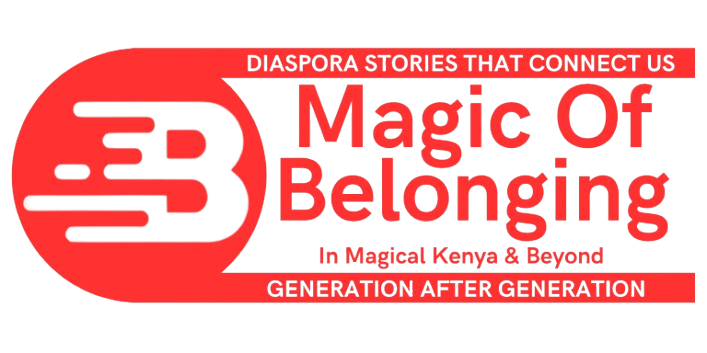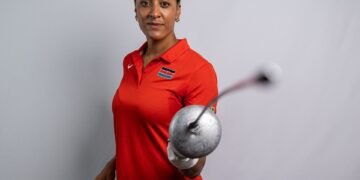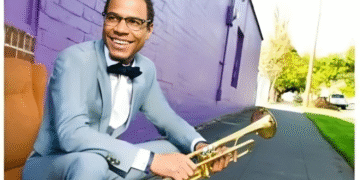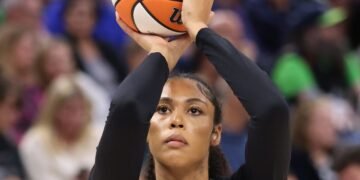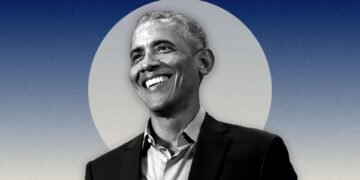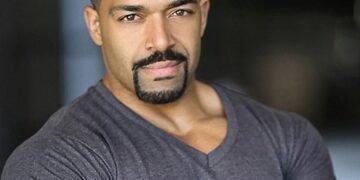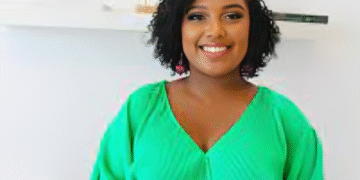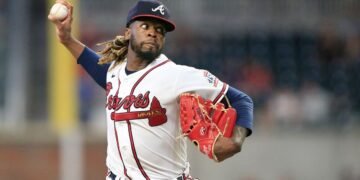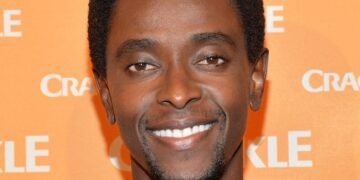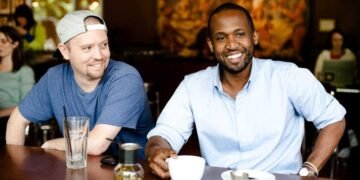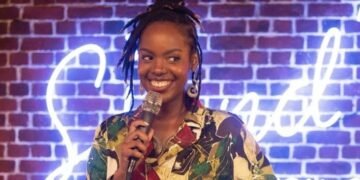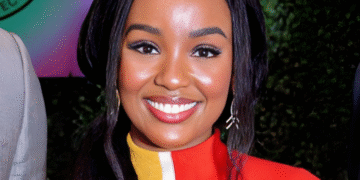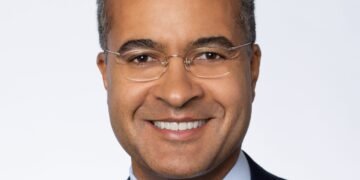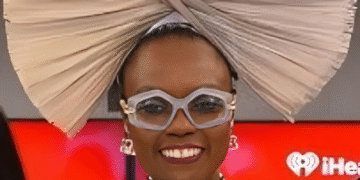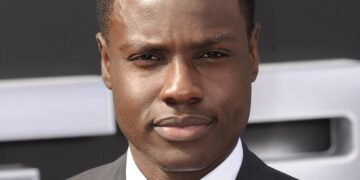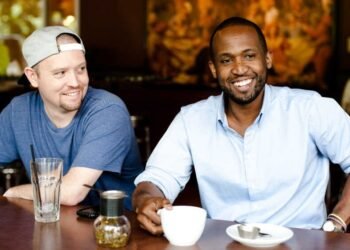On a humid summer night in Miami, the rookie pitcher takes the mound. His grip is loose but focused, fingers brushing the seams of the ball like a musician tuning his instrument. The crowd waits. He winds up—fastball. Then, a curveball arcs across the plate, sharp and wicked, freezing the batter mid-swing. Strike three.
In the stands, a woman named Kahaso Kiti rises to her feet, eyes wet with joy. This isn’t just a baseball debut. This is a moment decades in the making—a fusion of three continents, three generations, and one unyielding dream. The pitcher is her son, Dany Gilbert Kiti Toussaint, known to the world as Touki.
And his story is unlike any other in Major League Baseball.
A Name That Holds Nations
Before he ever wore a jersey or threw a pitch, Touki was already a map. His nickname is a blending of two worlds: “Toussaint,” from his Haitian father, and “Kiti,” from his Kenyan mother. In Swahili and Creole households, names are never arbitrary—they’re anchors, declarations, legacies.
Touki’s legacy began in Pembroke Pines, Florida, where he was born in 1996. But by the time he was a toddler, his mother had moved the family to Haiti, immersing him in the island’s culture, warmth, and rhythm. At age six, she brought him back to Florida, this time without his father. Just the two of them. A single mother and a growing boy, forging something steady in a world that kept shifting beneath them.
His nickname is a blending of two worlds: “Toussaint,” from his Haitian father, and “Kiti,” from his Kenyan mother.
The Matriarch and the Diplomat
If Touki’s left arm is his weapon, then his backbone is his mother—Kahaso, the daughter of Japhet Gideon Kiti, a career Kenyan diplomat and former ambassador to the European Communities. The elder Kiti once addressed the United Nations on complex geopolitical crises. His voice, calm but commanding, echoed in international chambers. He was Kenya’s representative in places where maps redrew themselves with every conversation.
From her father, Kahaso inherited a certain poise, a belief in preparation, service, and global awareness. And she passed all of it to Touki.
“There were no excuses in our house,” he once said. “You fall? Get up. You lose? Learn. You quit? That’s not even a word we use.”
He carried that ethos into everything—even sports. Though he started with baseball, a rough season at age 10 led him to quit and focus on soccer and hockey. But at 12, on a dare from a friend, he returned to the diamond.
It was like something ancestral had been reignited.
The Prospect Who Refused to Flatten His Identity
By high school, Touki’s arm was lighting up radar guns. A mid-90s fastball. A curveball that broke knees. Scouts came in droves. In 2014, the Arizona Diamondbacks made him the 16th overall pick and handed him a $2.7 million signing bonus.
But it wasn’t smooth sailing.
In his first professional season, his ERA exploded. Coaches tried to suppress his curveball—his best pitch—in favor of developing his fastball. It didn’t sit right with him.
Then, on his 19th birthday, everything changed.
He was traded to the Atlanta Braves in a move that most reporters labeled a salary dump. But behind the scenes, it became a personal liberation. In Atlanta’s farm system, he was allowed to be himself again—unleashing that signature curveball, refining his changeup, and sharpening his mental game.
By 2018, he was dominating minor league hitters and called up to the show. On August 13, he made his MLB debut: six innings, two hits, one run. Just the third pitcher in Braves history to deliver such a debut.
His name, once mocked as “unpronounceable,” now rang through stadiums.
Carrying Kenya, Haiti, and Baseball in One Body
In a sport often dominated by Dominican and Venezuelan talent, Touki stood out—not just because of his dual heritage, but because he owned it.
At the 2018 Futures Game, he draped himself in the Haitian flag, honoring the island that first taught him rhythm. And though he rarely spoke publicly about his Kenyan side, his mother’s accent, discipline, and legacy were woven into every training session, every team he joined.
His grandfather once navigated diplomatic minefields. Touki navigates clubhouses, pitching rotations, trade rumors. Both had to learn the power of silence and the right moment to speak—or to strike.
In the Braves’ 2021 World Series run, though he wasn’t always on the mound, he was present. Smiling beside his mother in the championship parade, wearing two invisible flags on his shoulders.
The Grind Between Glory
Touki’s path hasn’t followed the arc of typical superstardom. There were more transfers—Angels, Guardians, White Sox. Injuries, designations for assignment, a brief stop in Mexico. Every time he settled, another door closed.
“There were no excuses in our house,” he once said. “You fall? Get up. You lose? Learn. You quit? That’s not even a word we use.”
And still, he keeps showing up.
He returns to the mound with a 94-mph fastball and a curve that still fools the best. Because this is not just about baseball.
“People look at my stats and see struggle,” he once said. “But I look at my name, and I see everything I’ve already overcome.”
The Bigger Picture: Why His Story Matters
In a league where African heritage is rarely visible, Touki is more than a pitcher. He’s a bridge. A Kenyan diplomat’s grandson, a Haitian fighter’s son, and a Black American athlete navigating one of the toughest sports on earth.
His ERA may fluctuate. Teams may trade him. But his legacy is already written in deeper ink—in the choice to wear his flags proudly, in the quiet dignity of his mother’s gaze, in the resilience that stretches from Mombasa to Miami.
He is what belonging looks like when it doesn’t fit into neat boxes. And that, more than any curveball, is his most powerful offering.
Epilogue: More Than Just Baseball
When Touki Toussaint stands on a pitcher’s mound today, he isn’t just facing a batter. He’s facing history. His grandfather’s speeches. His mother’s sacrifices. His own younger self—the boy who once quit, who dared to return.
And each pitch he throws is a message to anyone straddling cultures, battling odds, and rewriting expectations:
You belong. Even here. Especially here.
The Review
macOS Sierra
A wonderful serenity has taken possession of my entire soul, like these sweet mornings of spring which I enjoy with my whole heart. I am alone, and feel the charm of existence in this spot, which was created for the bliss of souls like mine.
PROS
- Good low light camera
- Water resistant
- Double the internal capacity
CONS
- Lacks clear upgrades
- Same design used for last three phones
- Battery life unimpressive
